Torrenting is a widespread technique for downloading files such as movies, songs, games, and others through a torrent client.
Torrenters extensively use this technique worldwide to download a file from a single server, which is later transferred by several users with that particular file on their computer.
What is torrenting?
Torrenting is a type of peer-to-peer (P2P) file sharing method in which numerous users can connect and share their specific and required files instead of depending on a single website or source to download files.
It is beneficial because users download files from a single website/ source and other users of the same torrent, enabling a flowing transfer among them.
Moreover, torrenting also reduces the network because each peer/ user acts as a mini-server, considerably reducing the load.
How to use it
A wrong interpretation of torrenting is that many people think of it as a normal downloading process; however, things are a lot different. People prefer torrenting because it is pretty easy to search for a file according to the user’s choice. A user can search for it online and download it using a torrent.
Torrenting can fragment a file into small chunks of data. However, each user/peer has a different fragment of the file. The user downloads the file, shares it with peers who don’t have it and downloads all the data chunks. When the users have downloaded all the data chunks, they put them together, and finally, a complete file is formed.
In other words, to use a torrent, a user must follow these steps:
- Download a torrent client.
- Search for a reliable torrent to download.
- Download the torrent file.
- Add the torrent file to the client.
Is torrenting legal or illegal?
This is a very confusing debate about whether torrenting is legal or illegal, but it is essential to know that torrenting involves file sharing among users/peers. In this sense, torrenting is not unlawful.
The legal and illegal aspect of torrenting depends on the file being downloaded. Torrenting is legal if you are not uploading and downloading illegal content. However, if you’re torrenting copyrighted material, such files might have consequences.
Since every country has its legal structure for implementing copyright rules and regulations, it may be possible that if torrenting is considered illegal in one country and another, it might be legal. This all depends on privacy laws and the use of the internet. If you live in a country where torrenting is illegal or has strict rules regarding downloading copyrighted material, we recommend you avoid it. However, if you still wanna download torrents, use a VPN for torrenting.
Torrent client software is not illegal; however, torrenting copyrighted material is illegal in many countries.
Is torrenting safe?
Although torrenting isn’t illegal, sharing illegal content is. If you’re downloading or sharing copyrighted content, there is a greater chance of being caught by higher authorities. Moreover, there is also a chance of downloading infected files. Hence, it is recommended to use a VPN to make torrenting safer.
Governments and service providers work together to make the lives of the users more and more difficult for those who torrent media files and pirate software.
The future of torrenting
Torrent downloads peaked in the late 2000s, landing several people into legal trouble. As a result, the authorities increased their campaigns against torrenting activities. For instance, the US started blocking torrenting websites in 2011, and Canada followed suit. There are global attempts to curb piracy and the use of platforms like BitTorrent, but these torrent sites have become even more popular in recent years.
Torrenting with a reputable VPN service, such as NordVPN, will always ensure your identity is concealed, preventing your ISP from seeing what you are downloading. On the other hand, torrenting without a VPN will continually expose you to the risk of being targeted by third parties and cyber criminals.
However, the legality of VPNs varies per country, and your ISP may restrict you if they discover VPN use. Among the countries that have banned VPN services are Iraq, North Korea, UAE, Russia, China, Belarus, and Oman.
In conclusion, the duration of torrenting’s availability is uncertain, considering the government’s multiple attempts to ban it.
Can I get caught torrenting copyrighted material?
The consequences of illegal torrenting vary per country, ranging from a tap on the wrist to blocking their accounts to an extreme penalty of serving a prison sentence. However, chances of being arraigned in Court for using torrents are minimal unless you get caught downloading illegal content from a pirated website.
Suing torrenters for copyright infringement escalated in the late 2000s, when copyright pirates were prosecuted and fined significant sums of money. Furthermore, direct lawsuits against torrenters are infrequent today, but the war against torrenting continues.
Copyright trolls
Copyright trolls are typically small but rapidly growing legal firms that monitor individual copyright pirates. They strike a deal with copyright holders to track torrenters who download something illicit via their actual IP addresses and to take legal action on their behalf.
Moreover, copyright trolls use a list of names and legal leverage to track torrenters through email, mail, or personally handing them settlements. The letters are not legally binding orders or documents but a means of instilling fear, shame, and intimidation to make torrenters settle without appearing in Court.
These letters threaten to sue for a large amount of money but only ask for a modest figure in the settlement, making it seem like a fair deal. However, if you receive such letters, you should never give in because going to Court will be expensive and risky for copyright trolls.
What to do if you receive a settlement letter
The most typical method of receiving a settlement letter is via your ISP. Copyright trolls use the judicial system to subpoena your Internet Service Provider, forcing them to share personal information and emailing users with legal threats.
US law does not regard an IP address as an individual, so, likely, the copyright troll does not know your true identity if you are contacted via your ISP. If the letter does not include your personal data, you should not panic because your case may be withdrawn before your ISP discloses your personal information to the copyright troll.
Furthermore, this is a gamble for copyright trolls because only a few respond to the many threatening emails they send. It is more cost-effective for them to go after the next swarm of torrenters rather than trail those who failed and did not react. However, if the situation intensifies and you need to take action, hiring a good legal team to handle your case is the best option.
ISP penalties
Your ISP may decide to penalize torrenters on its own accord by throttling your internet connection or threatening to share your personal information with copyright trolls. This is because torrenting consumes large amounts of bandwidth, which is expensive for ISPs. Moreover, ISPs may be getting compensation from content holders and their acquaintances.
Risks of torrenting
Torrent downloading is done from a network of peers, so the risk of computer viruses tying a ride is slightly lower than normal downloading.
Another concern associated with torrenting is malware. The peer wouldn’t know that the downloaded torrent file might contain the virus from a source. The downloaded virus-affected torrent files can become a reason to cripple the user’s computer system. Therefore, always ensure that the torrent you’re downloading is verified.
With torrenting, illegal and unlawful access to corporations’ sensitive and significant business information is risky. This sensitive data may include workers’ records, corporate policies, information about stakeholders, rewards, etc. If a worker downloads a torrent file and saves it in the same critical information folder, the corporations’ higher authorities can access it. If they notice a torrent file, they will act against that person.
Torrenting doesn’t directly affect the user’s system. However, online hack attacks and illegally accessing users’ information are always possible. As soon as a user either uploads, downloads, or shares a torrent file, the online hackers become active and manage to collect data about the online user’s activities. After acquiring users’ data, the hackers use it for their personal use and advantage.
Surveillance agencies supervise torrent users and observe their online activities. If they find hints of illegally downloaded or copyrighted torrent files, torrent users face jail for torrenting or heavy penalties.
Torrenting rules and regulations in different countries
Different countries have different rules and regulations for torrenting. Torrenting may be legal in one country, but it is possible that it might not be permitted in other countries.
The following list shows different countries having different torrenting statuses:
| Countries where downloaded copyrighted content is permitted for personal use | Countries where downloaded copyrighted content is overlooked | Countries where downloaded copyrighted content is permitted for personal use | Countries that have shut down torrenting sites |
|---|---|---|---|
| Poland | Argentina | Finland | Australia |
| Spain | Brazil | France | China |
| Switzerland | Canada | Germany | Italy |
| Columbia | Japan | Latvia | |
| Czech Republic | UAE | Malaysia | |
| Denmark | UK | Portugal | |
| Egypt | Russia | ||
| Greece | South Africa | ||
| India | USA | ||
| Iran | |||
| Israel | |||
| Mexico | |||
| Netherlands | |||
| Philippines | |||
| Romania | |||
| Slovakia | |||
| Singapore | |||
| Uruguay |
How to protect yourself
If you want to avoid legal implications, you should stop torrenting. However, if you must torrent, safeguard your online privacy with the following measures.
Use a VPN
Using a VPN is the most secure way to torrent. It redirects your web traffic via a server in a location of your choice, enabling you to replace your actual IP address with a new one, making it a safe and anonymous way to share files with torrenters. This provides an extra layer of privacy, making it hard for anyone to track you.
Furthermore, the VPN will encrypt all torrent traffic before leaving your device, so third parties or your ISP cannot monitor your online activity.
However, you should always select a top-notch VPN provider with advanced features such as fast download speeds, a vast server network, robust security, anonymity, and privacy.
1. ExpressVPN
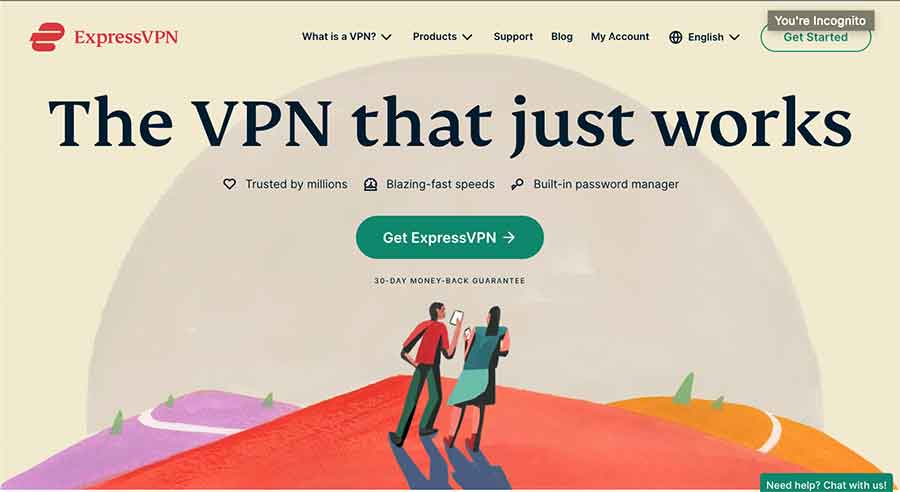
ExpressVPN is one of the best VPNs for torrenting. It offers over 3,000 global servers in 105 countries with lightning-fast speeds. It supports torrenting and unblocks geo-restricted content on major streaming platforms like Netflix. Furthermore, it uses robust security and privacy features like bullet-proof AES 256-bit encryption, split tunneling, and an active kill switch.
This torrenting VPN also prevents DNS and IPv6 leaks when downloading or sharing large files. ExpressVPN also offers a 30-day money-back guarantee, allowing you to test its service risk-free.
2. Private Internet Access (PIA)
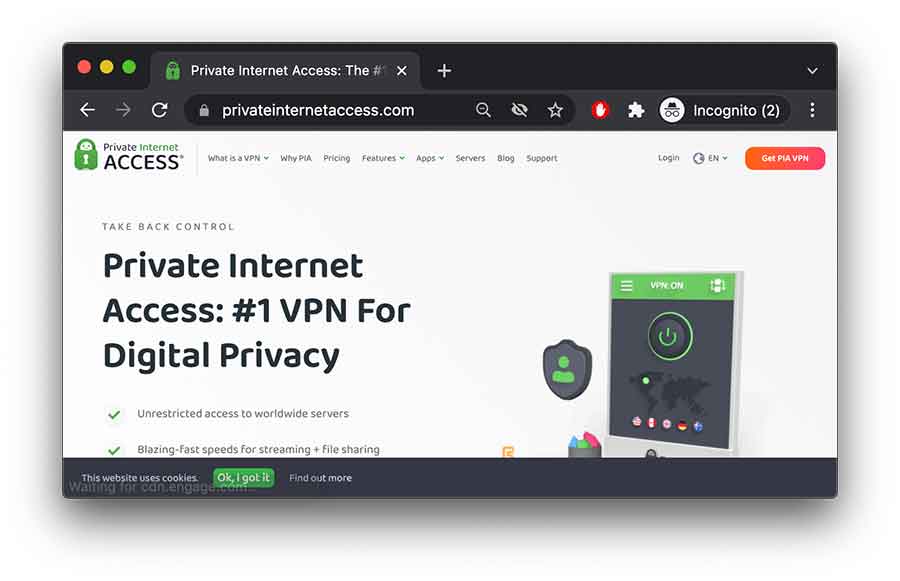
PIA is a decent VPN service that provides fast and stable speeds sufficient for downloading games and software from P2P platforms. It offers dedicated IP addresses and robust encryption that provides anonymity and hides everything, including illegal activities. Also, it includes an extensive network of over 35,000 next-gen servers in 84 countries. This VPN service offers unlimited bandwidth and multiple features to ensure a seamless torrenting experience.
Moreover, it affirms a top-tier level of security and privacy by hiding your IP address, masking your web traffic through robust encryption, and following a strict no-logs policy.
3. ExtremeVPN
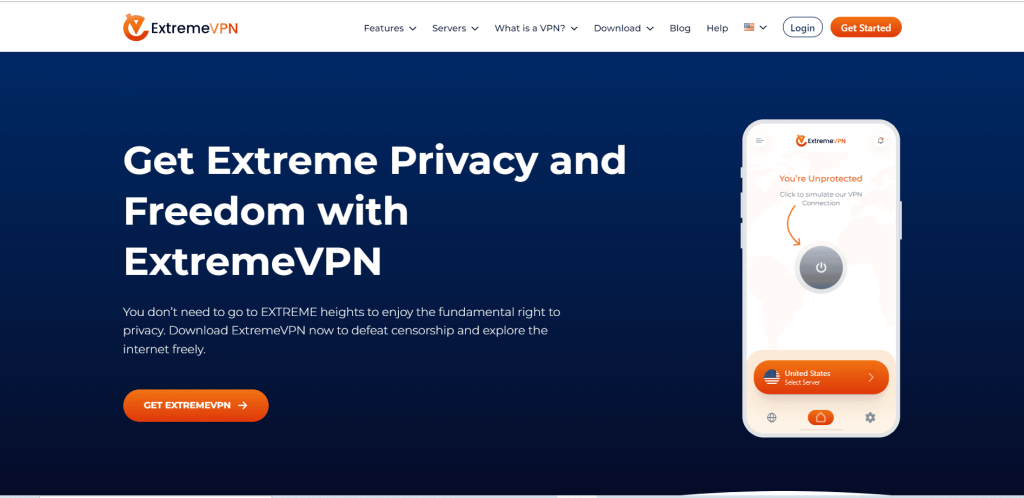
ExtremeVPN is the best VPN for torrenting. It offers blazing-fast servers that allow uploading and downloading of digital files anonymously and privately. The VPN service boasts over 6,500 servers spread in 78+ countries. In addition, it offers unlimited bandwidth that allows you to download and share torrents while circumventing ISP throttling.
Moreover, it provides sophisticated security and privacy features like AES 256-bit military-grade encryption, an internet kill switch, IPv6 and DNS leak protection, and split tunneling. ExtremeVPN also offers 24/7 customer support and a 30-day money-back guarantee, allowing you to claim a refund if dissatisfied with the service.
4. NordVPN
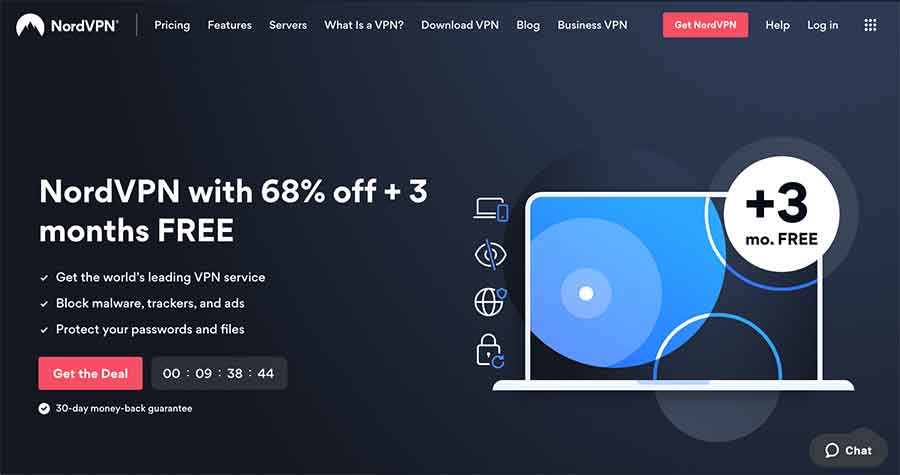
NordVPN is a reputable VPN provider with a vast network of 6,000+ servers spread in 111+ countries worldwide. It includes dedicated P2P servers with the fastest connection speed for downloading and sharing P2P files. Moreover, it uses military-grade AES 256-bit encryption, adheres to a zero-logs policy, and has an automatic kill switch for downloading and uploading files securely. The VPN service supports torrenting on popular iOS, macOS, Windows, Linux, and Android devices.
Usenet
Usenet is a premium service with a monthly price between $10 and $20. It enables you to download files from centralized servers rather than network peers. The downloads are lightning-fast and private since it offers an SSL-encrypted connection between you and the server provider. Moreover, torrenting via Usenet does not require you to seed the content after a download, making you less of a target since you are not sharing copyrighted materials. Usenet providers typically make the files available for at least 1,200 days after posting, giving you complete access to download the files.
What happens if you get caught torrenting?
In the USA, illegal downloading falls under the Copyright Act of 1976. Since torrenting sites are entirely shut down in the US, the general penalty is a monetary fine if someone is caught up with torrenting. The damage an accused may be indebted can range from $750 to $30,000.
This is an exactly fixed penalty amount. It may also depend upon the facts of the case and will later be decided by the legal courts. For example, according to CNN, a 32-year-old woman from Minnesota was found accountable for downloading 24 songs and was charged $80,000 per song, which means a total of $1.9 million.
According to a report published earlier this year, more than 1,000 lawsuits were filed against using BitTorrent in the US last year. Similarly, torrenting is illegal in the UK, illegal downloading falls under civil law, while copyright violation or stealing someone else work and publishing it on the internet has a sentence of a maximum of two years.
Other alternatives
Also, you can consider Tor if you do not want to pay for a VPN service. It encrypts your web traffic by directing it via several volunteer nodes. However, Tor is typically slow and only supports low bandwidth activity or simple browsing. Also, using Tor may attract the attention of authorities and your ISP because it is mainly associated with cybercriminals.
Peerblock is another well-known torrenting tool. It is a desktop firewall that includes a constantly updated blacklist of IP addresses belonging to firms like copyright trolls, which attempt to monitor your online activity, primarily on P2P networks. Sadly, the blacklist is only updated once upon installation, and you must pay to continue receiving updates. However, it is unlikely that the blacklist includes all IP addresses of copyright trolls, so you can still be tracked through an IP address.
Share this article
About the Author
Rebecca James is an IT consultant with forward thinking approach toward developing IT infrastructures of SMEs. She writes to engage with individuals and raise awareness of digital security, privacy, and better IT infrastructure.
More from Rebecca JamesRelated Posts
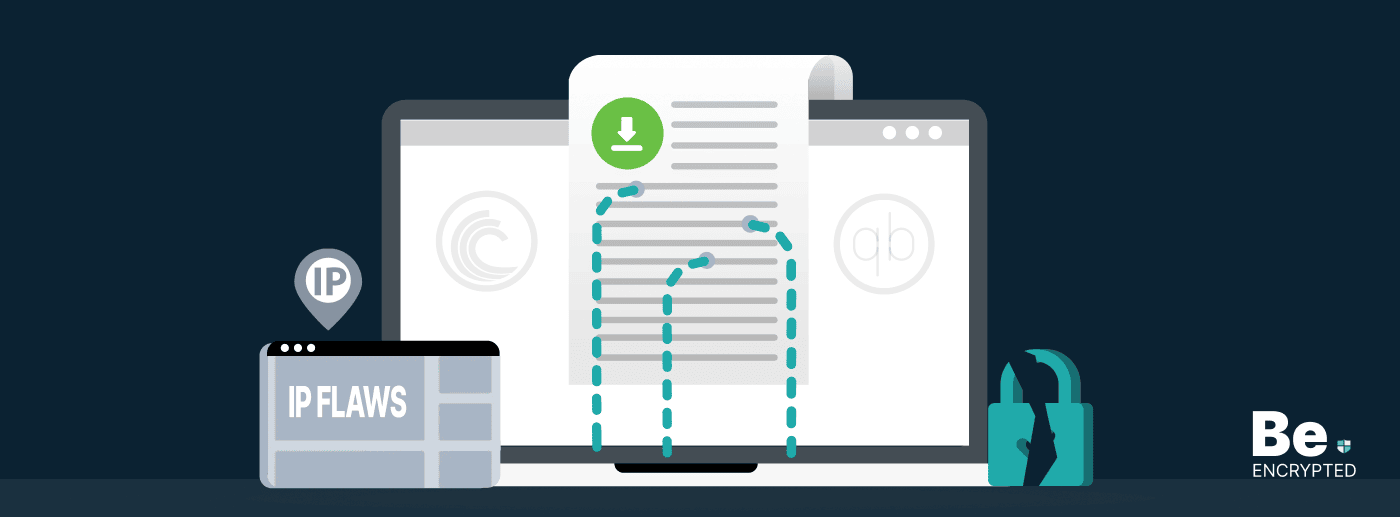
Torrent Privacy Risks: How to Torrent Safely and Anonymously?
KEY TAKEAWAYS Torrenting comes with its risks, but they aren’t insurmountable. Here are some ...
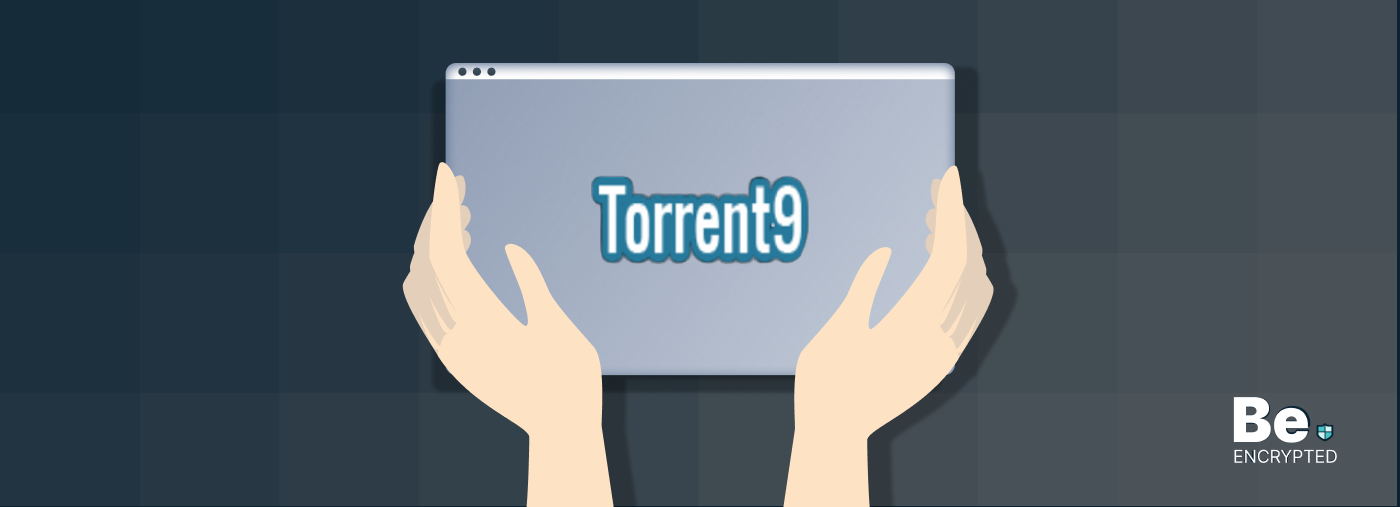
21 Best Torrent Search Engines in 2024 (100% Working)
KEY TAKEAWAYS The best Torrent search engines work to provide reliable torrent links. However, torre...
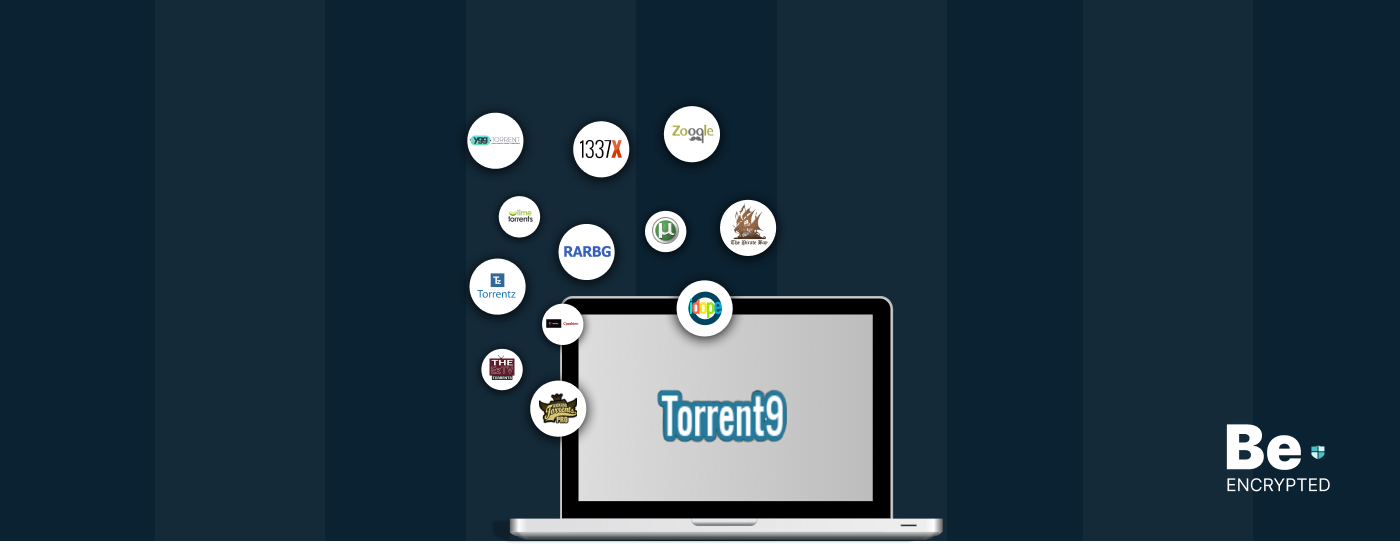
12 Best Torrent9 Alternatives in 2025
KEY TAKEAWAYS The popularity of Torrent9 has declined over time. It is because it offers copyrighted...
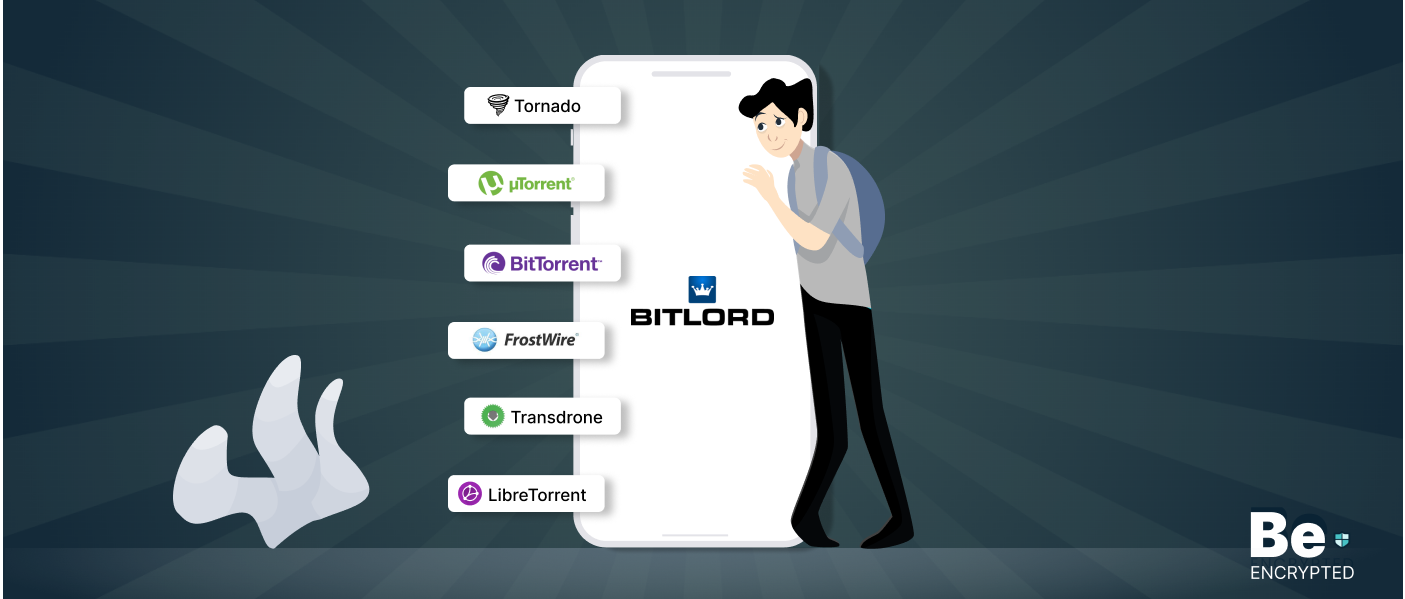
10 Best Torrent Apps for Android in 2025 (100% Working)
KEY TAKEAWAYS If you’re looking for a torrent downloader client for your smartphone, then have...
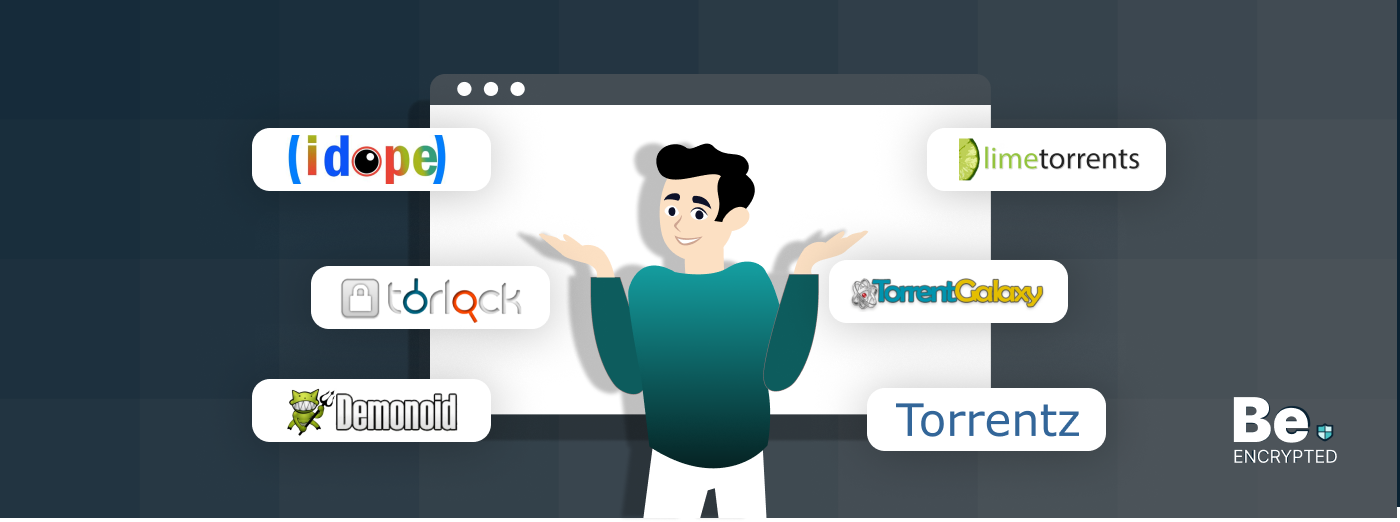
20 Best ExtraTorrent Alternatives and Proxy Sites in 2025
KEY TAKEAWAYS Authorities shut down the official ExtraTorrent website and erased all of its content....
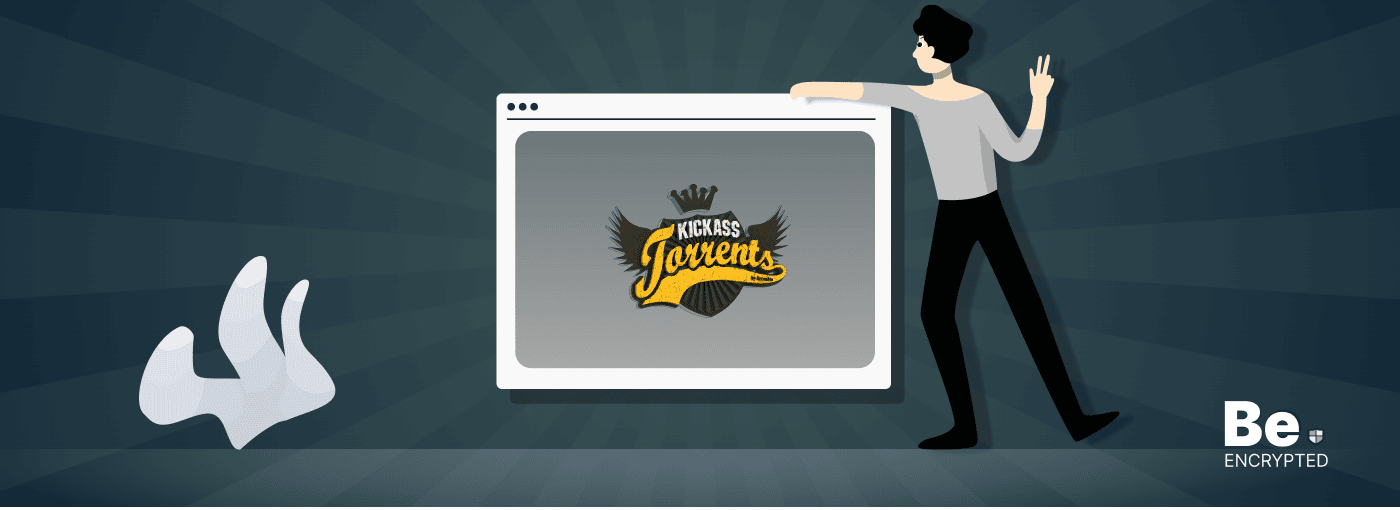
20 Best Kickass Torrents Alternatives in 2025
Kickass Torrents was one of the famous torrent sites, like the Pirate Bay, until the alleged ow...

